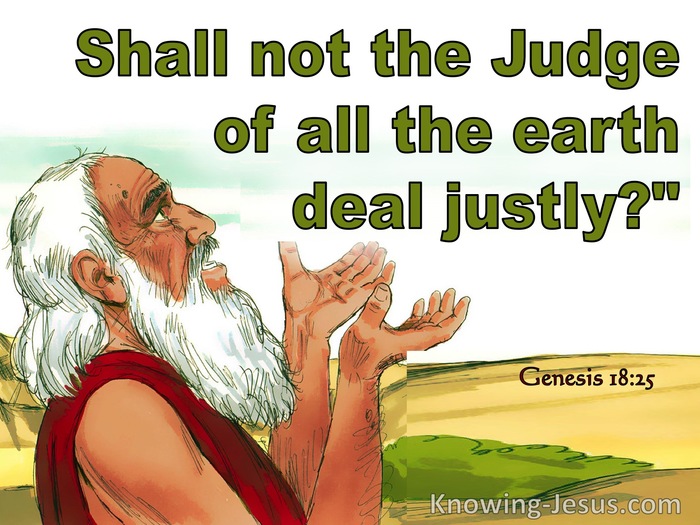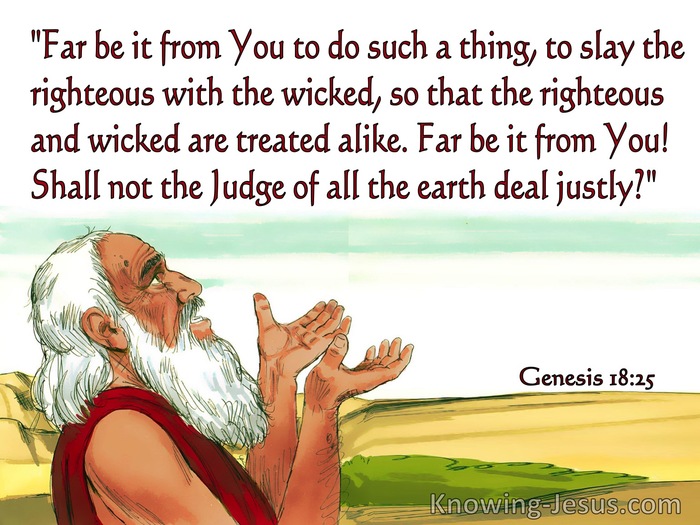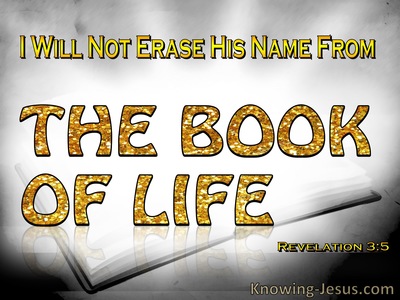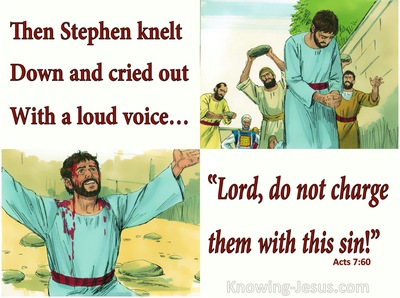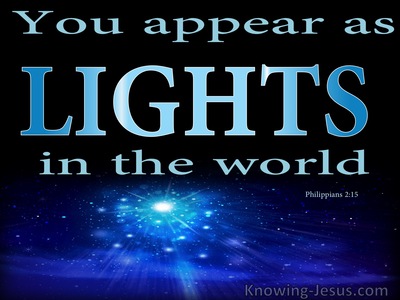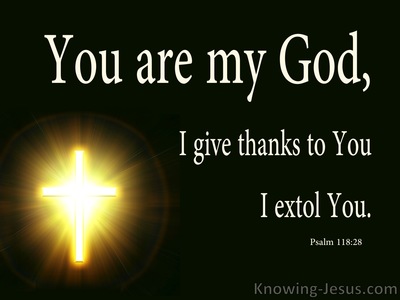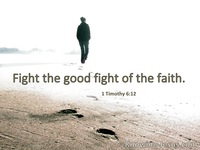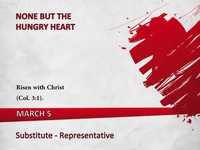◄ What Does Genesis 18:25 Mean? ►
"Far be it from You to do such a thing, to slay the righteous with the wicked, so that the righteous and the wicked are treated alike. Far be it from You! Shall not the Judge of all the earth deal justly?"
Genesis 18:25(NASB)
Verse of the Day
Wickedness in the days of Sodom and Gomorrah, had reached such depths of depravity that sin had to be punished. Judgement had to fall.
Because Abraham was the 'friend of God', he was given special revelation about the imminent destruction of the wicked cities on the plain. This servant of God was prompted to intercede on behalf of the righteous people there and he pleaded for the Lord to deal fairly with them.
In the wider context of God's dealings with Abraham and the part he played in God's redemptive plan, we see the Lord teaching His servant about many issues in this passage, including God's righteous judgement on the wicked. The intimate relationship between God and Abraham is a beautiful picture of the intimacy that all God's people can enjoy with our Heavenly Father. It demonstrates the value we gain when we protect our personal communion with the Lord through righteous living and humility of heart.
The Lord had just confirmed His promise to Abraham, that Sarah would shortly bear a son through Whom all the families of the earth would be blessed. He then told Abraham that if the wickedness of Sodom was as grievous as He had heard, they would undergo His severe judgement. God, in His omniscience, knew their sin had reached its fullness, but He wanted Abraham to understand that He is a righteous God and His judgement does not fall indiscriminately.
It was when the Lord revealed His plan to destroy the wicked cities and their inhabitants that Abraham not only considered the fate of Lot and others in that city who had trusted God for salvation, but also had pity for the many souls who were dead in their sin. And so begins a prolonged series of prayers and intercessions on behalf of the city: "Far be it from You to do such a thing, to slay the righteous with the wicked," is Abraham's opening remark, "so that the righteous and the wicked are treated alike. Far be it from You! Shall not the Judge of all the earth deal justly?"
Abraham not only KNEW God's plan, but became a personally involved participant in the fulfilment of His will. Because he had been given prophetic insight into God's impending judgement on these wicked cities, it ignited pity in Abraham's heart for the lost souls who lived there, and concern for those like Lot who were credited with righteousness because of their faith in the Lord.
The character of Abraham is revealed through his prolonged, persistent, intercessory prayer. He requested that God stay His judgement on Sodom because of its righteous inhabitants. Some time earlier he had rescued Lot and the other citizens of Sodom who had been captured and enslaved by Chedorlaomer and the kings who were with him. No doubt some of them saw Melchizedek, king of Salem, who was priest of God Most High.
Abraham probably assumed that among the people of Sodom there were a substantial number who were righteous, when He pleaded with the Lord not to sweep away the righteous with the wicked and asked his poignant question: "Shall not the Judge of all the earth deal justly? Shall not the Judge of all the earth do what is right?"
YES! God is a good and a righteous God and He dealt justly with Sodom and Gomorrah when they were destroyed by fire and brimstone. This episode in Abraham's life taught him, and us, a number of important lessons.
Firstly, God wants to maintain personal communion with His people and is ready and willing to listen and respond to our prayers, encouraging us to intercede for sinner and saint alike.
Secondly, it shows that even when we understand prophecy and think we are capable of correctly assessing a situation, we are not all-knowing and we can miscalculate a situation and misunderstand God's will. However, God is, and will always remain, the righteous Judge of the earth, and we can trust Him to deal fairly in every area of our lives and the lives of sinners and saints alike.
We also know that it is not God's will that any should perish but that all come to faith in Him. But man also has a freewill to believe or to refuse to trust in His gracious offer of salvation, and even when things happen that we don't understand, we must never forget that He is God and we are not. He is omniscient and is He all-knowing, but we are limited and fallible.
Perhaps another important thing to realise is that however great our heart of compassion for those that are lost may be, it can never begin to match the never-failing love and mercy that the Lord our God has for His creation.
May we be ready and willing to offer prayers and intercessions for both the lost and our Christian brethren, both those that are carnal and those that are walking in spirit and in truth, and let us trust the Judge of all the earth to deal justly with all people.
My Prayer
Heavenly Father, thank You for the many lessons I can learn through the life and prayers of saints like Abraham, who trusted You to deal righteously with all people on earth. Give me a heart of compassion to pray for those that are dead in their sins. Help me to pray for my brothers and sisters in Christ, especially those who may have lost their way in their spiritual walk and been lured into the carnality of this world-system, like Lot. Thank You that You are a compassionate God, a righteous Judge, and that I can trust You to do what is right in every situation of life. In Jesus' name, AMEN.
Choose a Verse from Genesis 18
Genesis 18:25 Further Study
- Genesis 18:25 in the Parallel Bible
- Genesis 18:25 in the Thematic Bible
- Genesis 18:25 Cross References
- Genesis 18:25 Treasury of Scripture Knowing
- Genesis 18:25 Sermons
- Genesis 18:25 Prayers
- Genesis 18:25 Images
- Genesis 18:25 Answers
- Choose Chapter
Never miss a post
